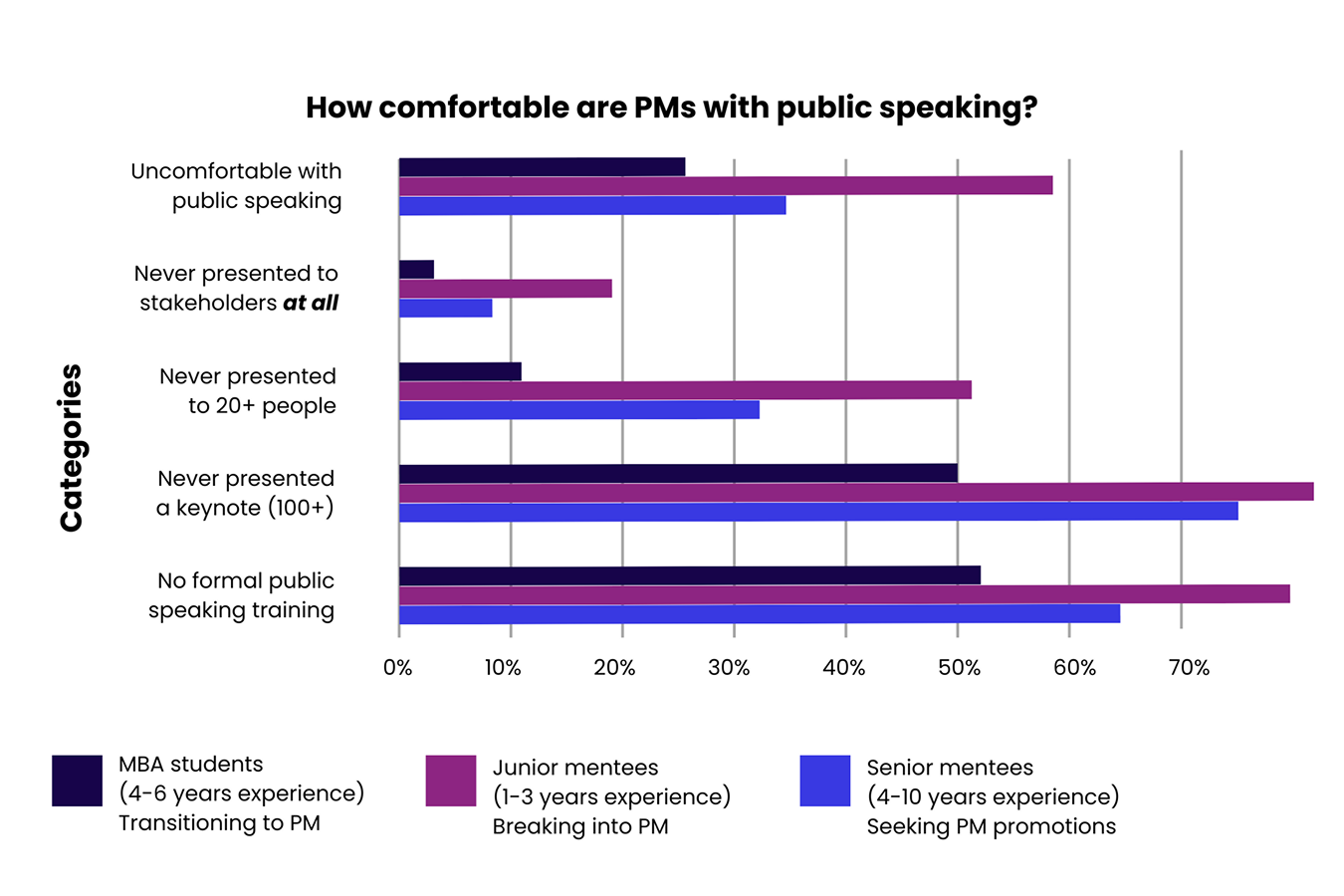Maybe you’re thinking about a change – moving industries, moving from a startup to an enterprise or vice versa, or looking for somewhere where you can add more value. How do you decide where to go next and how do you go about it?
We speak to some senior product people to get their thoughts and advice on what steps you should take when making a change.
In brief:-
- Start with clarity about your ambitions.
- Product is done differently everywhere.
- A smaller company that is product led will give you exposure to more aspects of a product manager’s role.
- Product should be industry-agnostic.
- When changing jobs, look to demonstrate the impact you’ve had rather than the things you’ve done.
- Remember that the people you work with are as important as the industry you work in.
How do you start?
It may sound obvious but you should start with some clarity about your ambitions. Be honest with yourself about your strengths and weaknesses and answer that old interview question about where you want to be in five or 10 years. As product coach Shaun Russell says: “Have some clarity about what's important and you can work back from that.”
It’s worth taking time to think about your career as if it’s a product, as Co-op Head of Product Adam Warburton has done. He explains his thinking in this MTP Engage Hamburg talk, Treat your career like you treat your products. In much the same vein Shaun adds that you can’t always expect to go from where you are to the place you want to be in one leap. “Sometimes you just have to take it step by step, it’s the classic product, agile mindset,” he says.
It’s also important to look at the people in a company when making decisions about a move. As Shaun says: “If you really connect with one person during interviews who’s going to be your manager, that’s probably a good thing.”
What about skills and specialities?
Without doubt, some industries are booming more than others. Product coach Anthony Murphy says that any industry that is technology-focused—fintechs and SaaS businesses for example—are good places to go at the moment. “Web 3.0, blockchain, AI, machine learning, all that cutting-edge technology is really starting to take off.”
Are there skills you should focus on to make yourself as marketable as possible? Anthony firmly believes that product managers should be generalists rather than specialists—he wrote this article to fully explain this view. He says: “I wouldn't necessarily look at getting into blockchain or whatever, if I was early in my career, I'd focus on getting into a smaller company, more of a startup, that is product-led, a company that values product management and practices like design thinking. In those places, you'll be closer to doing a product manager role.”
Anthony says it's very common to find product managers a decade or more into their careers who have never shipped a brand new product to market or done pricing strategy or modelling and so on. “Find a place where you can get exposure to those things… you’re likely to learn more,” he says.
How important is industry knowledge?
Shaun Russell says he often comes across product people who feel stuck in a particular area or industry, but in theory, industry knowledge should not be a prerequisite for most product management roles. As Adam Warburton says, most product people want to ship interesting things and improve experiences, and “you can do that in any industry”. He adds: “And if you think about the broad principles of product management, back to Martin Eriksson’s Venn diagram of UX, tech, the business with product management at the intersection, again, nothing about that describes a specific industry context. The principles of the discipline are fairly fungible and cut across pretty much any industry.”
Becky Yelland, VP of Product at Infogrid, has long held that Product is industry agnostic (she wrote this article, Becoming an industry-agnostic product manager, for Mind the Product in 2016). She says the most marked difference between roles is the extent to which the product person plays a part in defining the future product set and how much that is an intrinsic part of the future and success of a business. “If you’re responsible for a set of features in a 60-strong product team for a health tech, a fintech, or financial services, for example, your role will be really similar in each of those organisations. You'll know what the vision and the strategy of the organisation is, there's a drumbeat to the organisation that's known and understood. Your role is more around how you find improvements, increase velocity, and make sure that your customer is getting a better product,” she says.
Shaun adds that not having domain knowledge can be valuable, as long as you have solid product expertise. “For example, when people start jobs very often they have a window of time, when they're not yet indoctrinated by the industry, or by the way of working in a company, when they can ask questions and see things that other people don't see.”
What about bias towards industry knowledge and experience?
What can you do about bias towards industry knowledge and experience among hiring managers? Shaun Russell encourages people to ask themselves what’s on their resume that has relevance to the job and industry they’re applying for. He says: “It could be that your product experience in another domain gives you expertise that is needed in another. If you’re very experienced in discovery that becomes your specialist pitch and then the weakness in terms of domain isn't such an issue.”
Anthony Murphy advises that the best thing you can do to counteract bias is to emphasise the impact you’ve had. “Our job is to drive meaningful impact to our customers and our business.” Steer clear of features shipped, teams you’ve worked on and so on, as these are outputs. Instead focus on outcomes and impact: “What outcomes did you drive for your customers and your business? Did you improve retention? Did you improve acquisition? Did you ship a new product or market and you've grown a business through extra market share? That's the stuff that you want on your CV and that you’ll be questioned about.”
Becky adds that it’s her covering letter rather than her resume that changes from job to job. “It will be where I talk about my belief that a product manager is industry agnostic. If someone's taken the time to read that, they'll have an answer to the question of how a person can come from, finance into sustainability or insurance – whatever the transition might be.”
Further reading
A product managers’ dilemma in pursuing a career in startups versus large corporations
Finding flow in your product management career
Got questions about your product career?
Look out for part 2 of our Product career special next week







